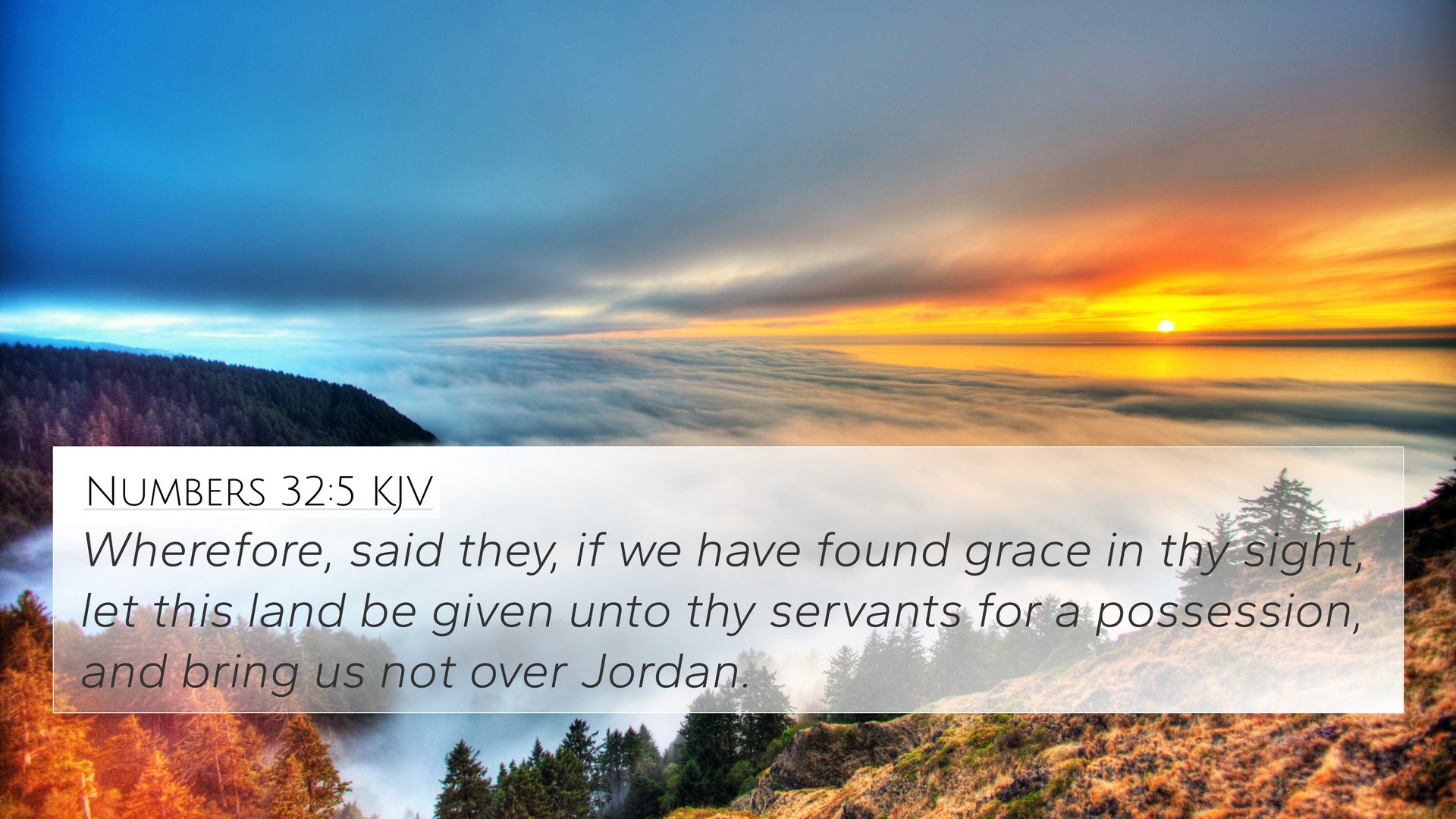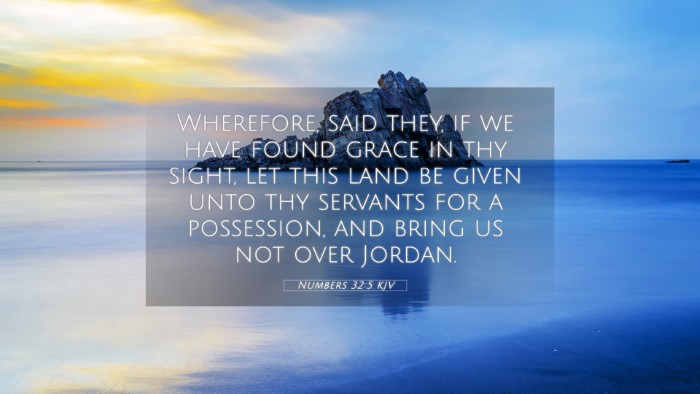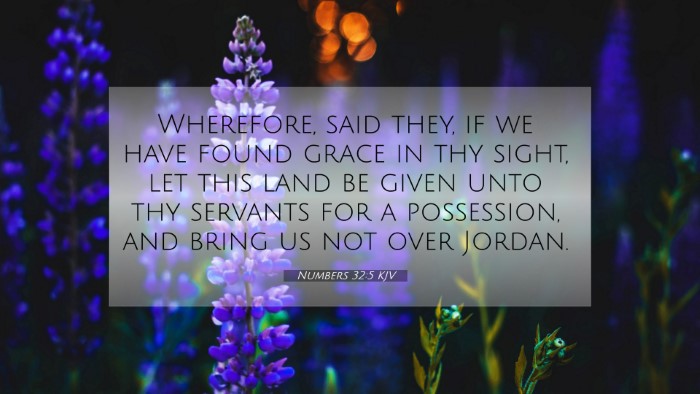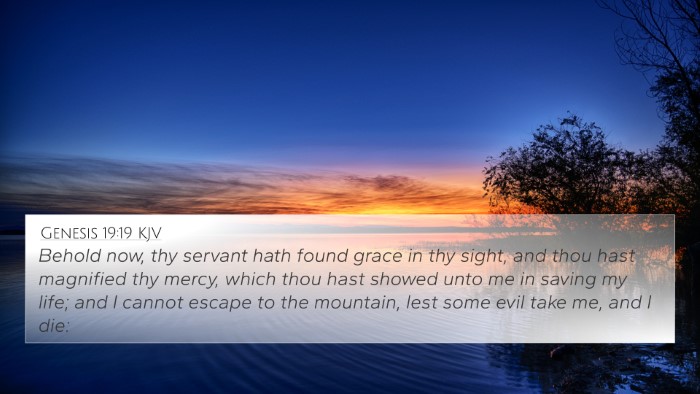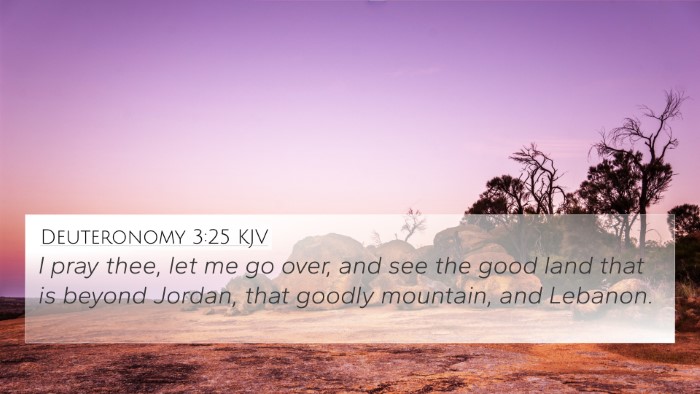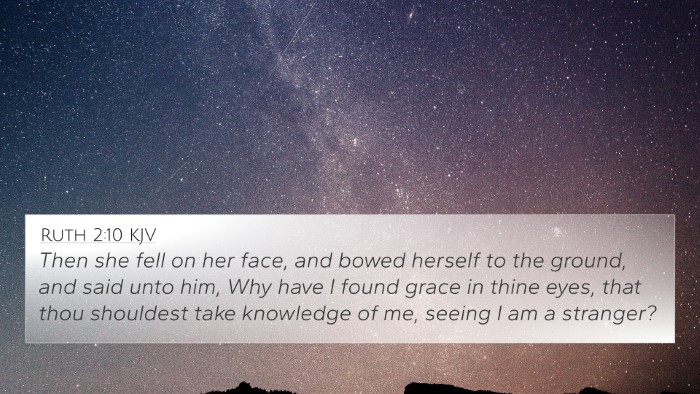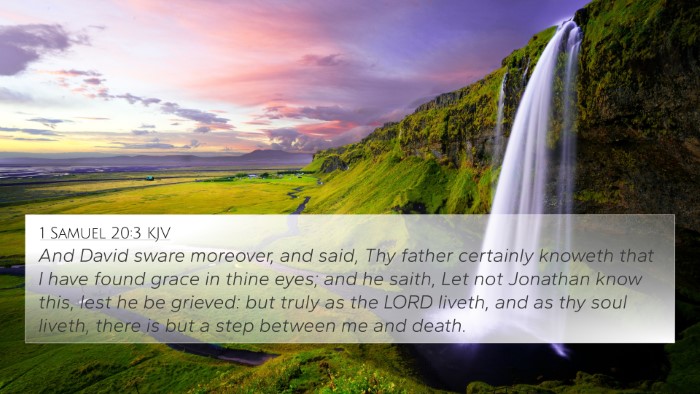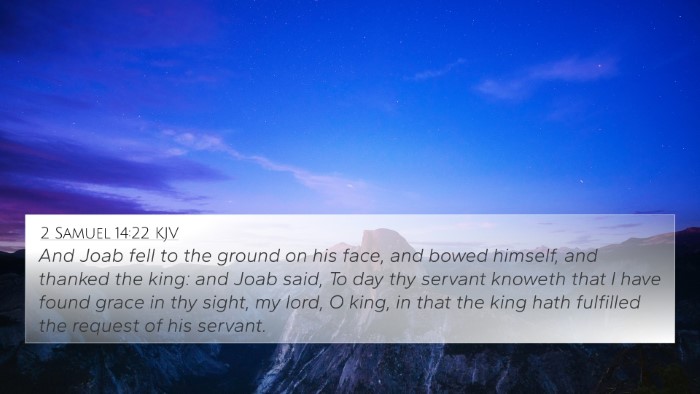Understanding Numbers 32:5
Numbers 32:5 states:
"Wherefore said they, If we have found grace in thy sight, let this land be given unto thy servants for a possession, and bring us not over Jordan."
This verse presents a pivotal moment for the Israelites as they approach the Promised Land. The request made by the tribes of Reuben and Gad reveals significant themes of faith, responsibility, and the complexities of divine promises.
Contextual Overview
Understanding Numbers 32:5 requires consideration of its context within the Book of Numbers and the broader narrative of the Exodus. Matthew Henry's commentary emphasizes the people's desire to settle before crossing the Jordan River, reflecting both their courage and hesitation.
Albert Barnes underscores the emotional weight of their request, noting that they sought to secure their inheritance while balancing their obligations to their fellow Israelites. Adam Clarke remarks on the implications of their choices, suggesting a duality between their immediate desires and long-term commitments to God and their community.
Theological Insights
This verse encapsulates the interplay of human agency and divine will. The tribes acknowledge their grace and favor with God, as highlighted in Hebrew religious understanding, which is essential in interpreting scripture through a theologically rich lens.
Henry emphasizes the importance of making requests in humbleness, suggesting that the tribes are not demanding but rather seeking permission based on their perceived grace. This ties into the essential Christian teaching that acknowledges the sovereignty of God while recognizing human appeal.
Key Themes
- Grace and Favor: The tribes of Reuben and Gad recognize the grace they have received, reflecting on the significance of divine favor as a theme throughout scripture.
- Responsibility: Their request to remain on the eastern side of the Jordan illustrates the heavier responsibility they carry towards the other tribes.
- Divine Promises: This verse raises questions about fulfillment and promises, as the Israelites navigate their journey to the Promised Land.
Cross-Referencing Related Verses
Numerous Bible verses connect with Numbers 32:5, enriching the understanding of the text through cross-referencing. Some related verses include:
- Deuteronomy 3:18: "And I commanded you at that time, saying, The LORD your God hath given you this land to possess it..."
- Joshua 1:14: "Your wives, your little ones, and your cattle shall remain in the land which Moses gave you on this side Jordan..."
- Exodus 3:8: "And I am come down to deliver them out of the hand of the Egyptians, and to bring them up out of that land unto a good land..."
- Hebrews 4:8: "For if Joshua had given them rest, then would he not afterward have spoken of another day."
- Philippians 2:14-15: "Do all things without murmurings and disputings. That ye may be blameless and harmless, the sons of God..."
- Numbers 21:33: "And they turned and went up by the way of Bashan: and Og the king of Bashan went out against them..."
- Jeremiah 31:7: "For thus saith the LORD; Sing with gladness for Jacob, and shout among the chief of the nations..."
Connecting Themes Across Scripture
Exploring connections between Numbers 32:5 and other parts of the Bible reveals a rich tapestry of themes that resonate throughout the text. From the courage displayed by the tribes to their negotiation of land, each aspect encourages deeper reflection on God's promises, the nature of faith, and community responsibility.
For instance, the themes of faith and responsibility recur in the New Testament, particularly in Acts 15:28-29, where the early church convenes to address matters of community and grace. The responsibility of sharing the gospel echoes the tribes' obligation to support their brethren in conquest.
The serendipitous overlap of these themes across the Old and New Testaments provides valuable lessons about obedience, stewardship, and the faithful pursuit of God’s will in community.
Practical Application and Reflection
In applying Numbers 32:5, individuals can reflect on their own lives concerning God's promises and the requirements that come alongside them. Are there areas in life where one is hesitant to step fully into God’s calling? How do we balance personal desires with responsibilities towards others?
Clarke suggests that believers might consider their spiritual responsibilities and how their decisions impact their community. This echoes the sentiment in 1 Corinthians 12:27: "Now ye are the body of Christ, and members in particular," emphasizing interconnectedness within the faith community.
Conclusion
In conclusion, Numbers 32:5 serves to challenge and inspire believers today. Understanding this verse through the lens of public domain commentaries enriches its meaning, revealing the complexities of faith, divine promise, and communal obligations. As one engages in scripture reading, the tools for Bible cross-referencing become invaluable, allowing for a comprehensive understanding of scripture connections.
By utilizing cross-reference guides, believers can deepen their scriptural knowledge, enhancing their studies and spiritual growth. As one explores the connections between Bible verses, they embark on a journey of discovery, finding richness in the inter-Biblical dialogue that informs faith and practice.
